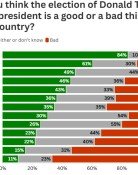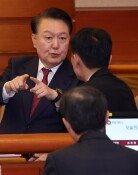Actual progress for agreements regarding IRA and CHIPS Act
Actual progress for agreements regarding IRA and CHIPS Act
Posted May. 01, 2023 07:51,
Updated May. 01, 2023 07:51
South Korean President Yoon Suk Yeol returned to South Korea from his seven-day state visit to the U.S. During the visit, the South Korean government said that the two countries built a foundation for the world’s best semiconductor alliance. It is positive that South Korea attracted 5.9 billion dollars of investment and expanded partnerships into advanced technologies, such as semiconductors and secondary batteries. However, there is also criticism that South Korea has not gained much compared to all the praise.
In particular, it is regretful that a clear solution hasn’t been found to address South Korean companies’ concerns regarding the U.S. Inflation Reduction Act and the CHIPS Act. The joint statement adopted after the summit and the following minister-level discussions simply mentioned that the two countries would continue cooperating and coordinating closely without proposing specific plans. While the South Korean presidential office said that the two leaders clearly agreed on reducing the burden and uncertainties for South Korean companies, it does not relieve worries as South Korean companies cannot simply expect the U.S.’s goodwill.
The IRA Act and the CHIPS Act were the summit's main agenda. The U.S. has made excessive requests, such as providing business secrets and sharing excess earnings in return for offering subsidies to semiconductor companies. With regards to the IRA Act, South Korean companies are excluded from those eligible to receive electrical vehicle subsidies from the U.S. government. Measures to reduce immediate damage, such as making detailed regulations more flexible and allowing for exceptions, were needed regarding such details but have not been put forward.
The memoranda of understanding (MOU), considered the main achievement of the recent state visit, remains to be seen if they will bring practical benefits. While 50 MOU were signed, including 23 in bio, 13 in advance industries, 13 in energy, and one in content, they are not legally binding, which means they may not actually lead to investment. Concrete solutions for legal disputes between Korea Hydro & Nuclear Power and Westinghouse Electric Company, the major hurdle for exporting South Korean nuclear power plants, are also yet to be put forward.
Now is the real beginning. The South Korean government should try its best to address the concerns of businesses and people during a process to develop detailed measures and negotiate. Solutions for poisonous clauses in the CHIPS Act and the policy to provide electric vehicle subsidies and assurances to prevent additional restrictions should be obtained. Continued discussions should be made to ensure that MOU and partnerships lead to investment and cooperation. Practical progress, not just words, should be achieved.







